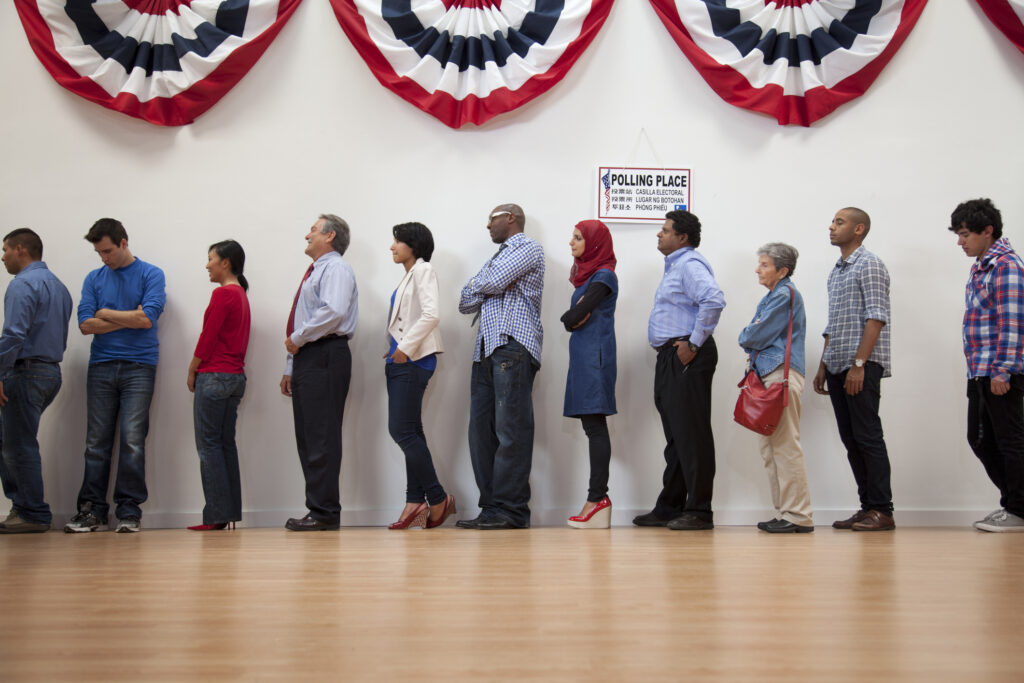The early voting period for the 2024 elections has officially begun in Ohio, running from October 8 through November 3. Approximately 8 million registered voters in the state now have the opportunity to cast their ballots before Election Day at their respective county boards of elections. As many voters prepare to participate, they may be unaware of significant changes to voting regulations enacted by Republican lawmakers in 2023, particularly the introduction of one of the nation’s strictest voter ID laws. These changes come amidst claims of widespread voter fraud, despite a lack of evidence supporting such assertions.
The push for these voting restrictions, particularly in GOP-controlled states following the disputed 2020 presidential election, has led to the passing of new laws aimed at making it more difficult for citizens to exercise their voting rights. Republican leaders have justified these laws in reaction to former President Trump’s unfounded claims concerning election integrity. As a result, numerous states, including Ohio, have followed suit with regulations that further complicate the voting process, particularly for those who may not have the newly mandated forms of identification. Many voters, accustomed to using previously accepted forms of ID, found themselves suddenly disenfranchised as more rigid rules were implemented shortly before primary elections.
The new ID requirements created considerable barriers, leaving voters unsure and unprepared. Those without the approved identification could opt for a provisional ballot, but they were required to rectify their ID issues within a drastically shortened timeframe—four days instead of the previous ten. This was particularly challenging for voters lacking easy access to transportation or the financial means necessary to obtain the suitable documentation. Reports indicated a significant increase in the number of provisional ballots thrown out, raising concerns about a potential wave of rejected votes leading into the general election.
As the voting landscape becomes increasingly complicated, conversations surrounding voter disenfranchisement persist. Lawmakers, like Ohio State Rep. Thomas Hall, who sponsored the stringent ID legislation, have downplayed the potential impact on voters, asserting that it was not their intention to disenfranchise anyone. This attitude, coupled with a near-total lack of outreach from state Republicans to educate the public about the new voting regulations, leaves many potential voters uninformed. Those who wish to participate in the upcoming election are urged to take proactive steps to ensure they are registered to vote and to confirm that their voting rights have not been unduly compromised by potential purges of voter rolls.
Voter engagement is crucial, as the outcome of the 2024 elections could notably influence local and national governance. Decisions made by the next president, U.S. senator from Ohio, and state officials will have profound long-term effects on fundamental civil liberties. Individuals must consider the importance of their votes and the issues at stake, from representation and voting rights to broader social concerns such as women’s rights and public safety. The stakes are high, and voters must weigh the importance of participating in this democratic process against the obstacles that have been erected in front of them.
Ultimately, the elections represent more than just a choice between candidates; they signify a critical moment in American history where the principles of democracy, freedom, and equality are tested. This election is viewed as a referendum on the state of the republic and the values inherent in self-governance. It is vital for voters to recognize that the responsibility of securing a vibrant democracy rests on their shoulders. The time for action is now, as the changing tides of legislation threaten to undermine the very essence of voting rights that have historically been seen as inviolable. Engaging in the electoral process is crucial, not only for individual empowerment but also for the preservation of democratic ideals for future generations.

